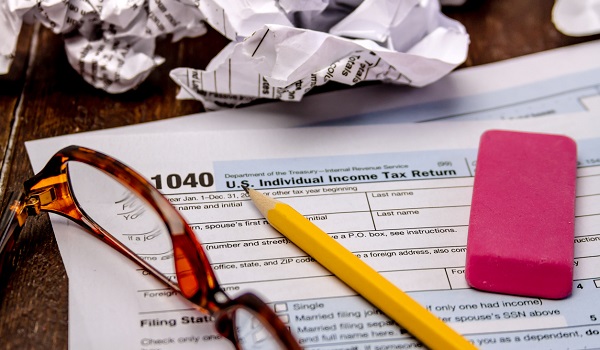Early Birds Should Be Careful
Have you been waiting patiently to file your taxes? If so, you’re in luck. The 2018 tax season is now underway. January 28, 2018, was the first day that the IRS would accept tax returns for the 2017 tax year, either electronic or paper copies. (You can mail in paper copies at any time, but they won’t be processed until the tax season kickoff date set by the IRS.)
Why file your taxes early? A better question is: Why leave taxes hanging over your head until April and then spend a stressful week trying to complete your return? In addition, filing early can thwart any identity thieves trying to file a false return in your name – and if you have a tax refund coming, why wouldn’t you want to get it as soon as possible?
Even so, early filers must take care to avoid mistakes that negate the benefits of an early return. Go-getters should consider the following pitfalls of filing early before making their decision.
1. Forgetting Forms – Understatement of the Day: Tax forms are not always straightforward, and it’s not always obvious which forms you need to receive before filing.
Taxpayers with multiple income sources need a W-2 or 1099 form covering each source where you earned at least $600 throughout the year. If the IRS receives the matching copy without your submission, at best there will be a delay in processing your form. Penalties may apply, and, at worst, an audit may follow. In addition, remember that even if you didn’t receive a 1099 from an income source of less than $600, you still must report the income.
Generally, W-2, 1098, and 1099 forms must be supplied to employees and self-employed contractors by January 31, although some 1099 forms have a deadline of February 15 and K-1 forms can take even longer. Review all of the forms that may apply and verify that you have received all necessary forms before filing your return.
Don’t forget outgoing forms as well as incoming ones, especially if you itemize. Many credits and deductions require submission of a separate form to show proof of eligibility and to calculate proper amounts.
2. Ignoring 1095 Health Form Requirements – If you bought health insurance on the exchange for the 2017 tax year, don’t be fooled by the published changes in the recent Tax Cuts and Jobs Act. You will still receive a 1095 form indicating proof of health insurance coverage for 2017. The individual mandate that requires health insurance coverage has been removed, but the changes won’t take effect until the tax year 2019 (to be filed in 2020).
3. Failing to Double-Check Information
Did you sign your form? Did you double-check your math? Did you download the correct year’s forms and instructions? It’s very easy to forget the simple things when you’re in a hurry. Review your form before submitting it, and if possible, take a few minutes between filing and submission. It’s difficult to proofread anything immediately after it’s finished.
4. Filing an Amended Form Incorrectly
Let’s say that you find a math error in your form or realize that you forgot to include a 1099 form after an early filing. Should you immediately follow up with an amended form? No. The IRS will correct your math errors and notify you about any missing forms.
However, you should file an amended return for changes in filing status, income modifications, or deduction/credit changes. Don’t start over with a new 1040 form – use Form 1040X, indicating only the relevant changes. Amended returns must be paper copies – no electronic filing allowed.
5. 2018 Contributions to 2017 Taxes – Several transactions that can be made in 2018 can affect your 2017 tax submissions. For example, you have up until the tax deadline (April 17 for 2018) to make contributions to your IRA and have them count against the 2017 tax year – assuming you properly identify the contributions as being for 2017. If you have already filed your 2017 tax forms, you would have to file an amended return to make a contribution affecting the previous year.
The Takeaway
There are many good reasons to file your taxes early, but don’t sacrifice accuracy for speed. Make sure that you have all the required forms and that any transactions that will affect the 2017 tax year have already taken place. Review your tax form carefully before signing and submitting it to the IRS.
Nobody wants to spend any more than the minimum amount of time doing taxes, but think of it as an investment. Double check-your work and you’ll be more likely to avoid filing an amended return – and possibly incurring an IRS audit. The money you’ll save in antacids alone is well worth it.


